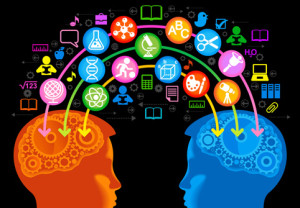A Survey of Performance Assessment and Mastery Tracking Tools
It’s testing season and lots of kids are taking multiple choice tests–more online than last year but lots of the same old item types. It’s part of a 100 year old ‘teach then test’ cycle of assessment as a summative activity.
At some schools, projects and multi-step tasks supplement more traditional forms of teaching and learning–they extend and apply learning and provide a form of alternative assessment. At a few thousand schools (most are part of Deeper Learning networks) the instructional program is a sequence of performance tasks. These schools have made the shift from assessment of learning to performance assessment as learning.
Performance assessment, as detailed in a December post, is the application of knowledge, skills, and work habits through the performance of tasks that are meaningful and engaging to students.” Performance assessments make new standards real, personalize learning and can serve as authentic gateways in competency-based systems.
The problem is that it’s hard to string together a series of performance tasks for every student that challenges them in interesting and appropriate ways while reflecting common standards. An exemplary system would be a full learning management system with a library of prompts, projects, instructional materials, standards-based rubrics, scoring and communication tools. A super gradebooks, a robust portfolio, implementation support, and professional development would round out the desired platform attributes.
New report. Despite marked progress in the last year, the tools for creating and managing performance assessments and tracking student progress are still inadequate for teams creating next-generation learning environments–that’s the conclusion of new market research report on the status of performance assessment tools.
“Assessing Deeper Learning: A Survey of Performance Assessment and Mastery Tracking Tools” was developed for Envision Learning Partners and partner organizations Asia Society, ConnectEd and New Tech Network. They share a common interest in better performance assessment tools.
The report outlined numerous barriers to better performance assessment including:
- A wide range of performance tasks and the open-ended nature of the responses make it challenging to build generalizable capabilities;
- No recognized standards or best practices in measuring non-cognitive variables;
- Attempts to add flexibility add steps to construct a standards-based performance task; and
- Tools specific to school networks are not available or useful outside the network.
Twelve key features identified as important by the sponsors include interoperability, calibration of scores, a library of tasks, support for multiple revisions and collaboration, standards-based project rubrics, available professional development, reporting tools, customization, student portfolio development, an updated user experience and an affordable price tag.
The most promising performance assessment tools reviewed in the report is ShowEvidence, a new product nearing final release and used by some of the sponsor networks. Project Foundry is a similar project-based learning tool used by the Edvisions School network. Additional investment would support improved functionality and scalability of both.
The report also compiled a list of mastery tracking tools. While there has been improvement in this category as well with products like Engrade, Kickboard, and JumpRope, applications are still inadequate for managing a fully competency-based environment.
Performance assessment and mastery tracking are an example of categories where leading schools are out in front of the market. A combination of philanthropic and venture investment could quickly improve products in these categories and fuel the next-generation of schools.


